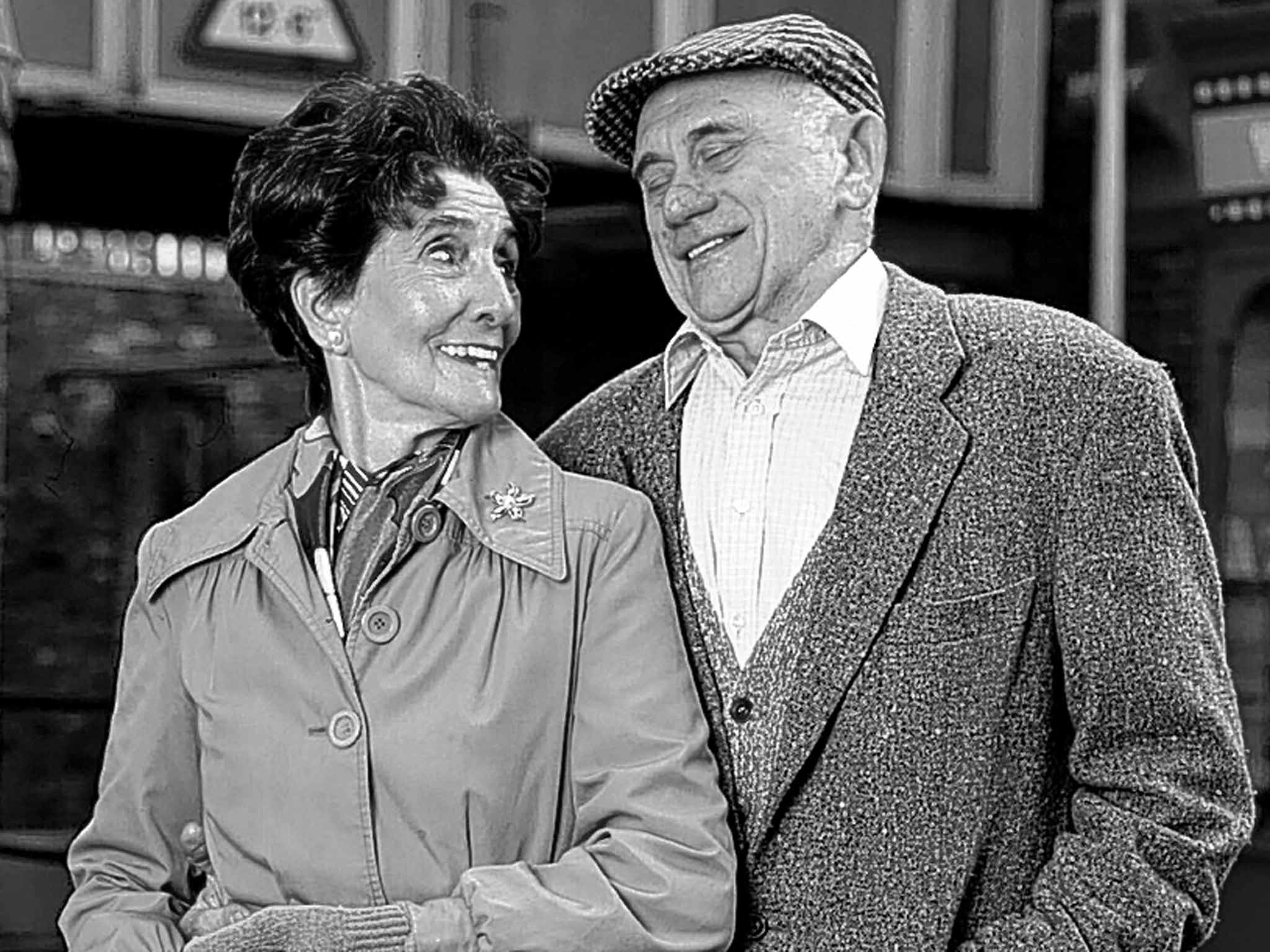John Bardon: Actor who rounded off a long career as villain and buffoon with a moving turn as Dot Cotton's 'EastEnders' husband

A burly, jolly comic actor with a touch of Dickensian London about him, John Bardon was equally adept at villainy as buffoonery, but trumped both at the end of his career with a moving, tender study in pathos.
The character of Jim Branning in EastEnders travelled from being a bigoted bully with an appalling track record as a parent to a source of comedy (an area EastEnders has rarely triumphed in), and finally, after marriage to Dot Cotton had given the soap a charming love-come-lately storyline, became a source of sadness, when Bardon's own failing health was written into the programme. He suffered a stroke in 2007 but, amazingly, returned to work, Jim's clownish face at the end collapsed into an expression of fear and despair.
EastEnders granted Bardon security after a career which had been busy though not always lucrative (he was behind the wheel of a cab when the call came offering him the role of Jim Branning); of his bold performance as the neighbourhood racist in East is East (1999) he commented that "we all did that for minimum wage. Someone made a lot of money out of it, but it weren't us."
He was born John Michael Jones in Brentford, where his father ran a building firm. While working by day as, among other things, a window dresser, he formed an amateur theatre company, The Taverners, touring London pubs. He turned professional in 1969, adopting his grandmother's maiden name, his first appearance beginning a long association with the 69 Theatre Company, a Manchester-based troupe that performed in a tent and in the University Theatre before becoming the Royal Exchange Theatre Company, with its own premises, in 1976. Before getting too involved with them, however, he joined the rep company of Exeter Northcott Theatre, debuting in Wesley: A Man Against His Age in 1969. The company then gave the city its first professional Hamlet since the Donald Wolfit Company had toured there 30 years earlier, Bardon in the first of his many Shakespearean clown roles as the First Gravedigger.
He was next a "dour but ever willing" Brassett in a production of Charley's Aunt directed by Anton Rodgers, and by the end of 1970 had also been Antonio in Twelfth Night under the direction of Tony Church, an expressive Common Man in A Man for All Seasons, and given "a fine portrayal providing comic relief of the highest order" in Don Taylor's plague-play The Roses of Eyam. After being "all fuzz and flounces" as a grotesquely comic Grumio in The Taming of the Shrew, he left Exeter to join the RSC, where roles included Demetrius in Antony and Cleopatra (1972).
Back in Manchester he appeared in a musical version of JB Priestley's The Good Companions (1974) which began at the Palace Theatre and then transferred to His Majesty's. He remained in Manchester as part of the company to launch the Royal Exchange Theatre with a double bill of The Prince of Homburg and The Rivals in 1976, then delivered a "colourful and pugnacious" Joe Wrigley in Harold Brighouse's Zack and a full-blooded Squire in Emlyn Williams' folk comedy The Corn is Green in 1981. He was also a prolific pantomime player, notably with Trevor Peacock as a pair of Ugly Sisters at the Palace in 1982 to Lorraine Chase's cockney Cinders.
It was while appearing in The Good Companions, in a role previously played by the music hall comedian Max Miller, that Bardon hit upon the idea of playing Miller in a one-man show. Here's A Funny Thing was commissioned as part of William Gaunt's first season as Artistic Director of Liverpool Playhouse in 1980, travelled to the Edinburgh Fringe that summer, to the Lyric, Hammersmith and finally to the Fortune Theatre, where it was filmed for Channel 4 and became a vaunted highlight of the broadcaster's launch. For Bardon it was a career high: while his features behind make-up were a touch sinister compared to the more effete Miller, his pell-mell patter and deft, balletic movements were spot-on.
By now a familiar supporting actor on television, he was great value as honest tea-leaf Fred Timson in Rumpole of the Bailey, who on one occasion tried to welcome a regal Liz Hurley, who is dating a relative, into his Cockney clan, by recommending a good window cleaner: "Now, you can trust him not to nick anything". He was equally good fun as a class-conscious juror in a classic episode of Minder (1983) and in recession sitcom Get Back (1992).
Later stage highlights included a ruthless chairman in Richard Ireson's hitherto banned football drama Just A Kick in the Grass (Nuffield, Southampton) in 1987, a weaselly grass in an unforgettable prison three-hander No Remission (1993), and, with Emil Wolk, delivering a show-stopping rendition of Brush up your Shakespeare in the RSC's Kiss Me Kate in 1987, which won the pair an Olivier Award.
But it is EastEnders that has granted him immortality, especially for his moments mixing the prosaic with the awkwardly romantic. Memorably, in a proposal scene on the London Eye, he responded to Dot's reflection that Christ was sacrificed for our sins with, "I know that, and it's appreciated, but even he must have needed a bit of company sometimes".
John Michael Jones (John Bardon), actor: born Brentford 25 August 1939; married 2002 Enda Gates; died Hitchin 12 September 2014.
Subscribe to Independent Premium to bookmark this article
Want to bookmark your favourite articles and stories to read or reference later? Start your Independent Premium subscription today.

Join our commenting forum
Join thought-provoking conversations, follow other Independent readers and see their replies